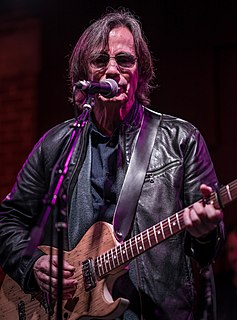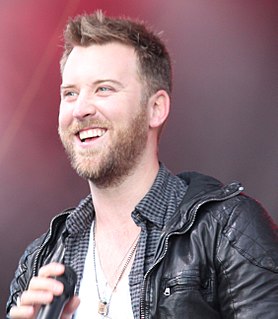A Quote by Jackson Browne
Right around the end of the fifties, college students and young people in general, began to realize that this music was almost like a history of our country - this music contained the real history of the people of this country.
Related Quotes
I think I had the same notion most people have, which is it’s simply a town that percolates around country music. Though country-music history is deep and richly steeped throughout the city, this is a place that’s been expanding musically and culturally…People coming from Europe and Canada-there are all kinds of different cultures and different music being represented here. It continues to blossom.
Music expresses feeling, that is to say, gives shape and habitation to feeling, not in space but in time. To the extent that music has a history that is more than a history of its formal evolution, our feelings must have a history too. Perhaps certain qualities of feeling that found expression in music can be recorded by being notated on paper, have become so remote that we can no longer inhabit them as feelings, can get a grasp of them only after long training in the history and philosophy of music, the philosophical history of music, the history of music as a history of the feeling soul.
We're bringing the corporate rate down to 20 percent from 35 percent. That's a massive - this will be the biggest tax cut in history. In the history of our country. And that's great. And we need it. Because right now, our country's about the highest taxed or certainly one of the highest taxed in the world. And we can't have that. So we're going to have a country that's toward the lower end.
People always say, 'There are plenty of black country artists out there! There is Charley Pride! Darius Rucker!' That's all they can name. They don't understand what we go through, and a lot of people who are fans of traditional country music, as they call it, look at us and aren't going to say, 'Y'all like country music.'
We love all kinds of music: We love pop music, we love rock music, we love R & B and country, and we just pull from all our influences. So I don't really take offense as long as people are coming out to the shows and buying the records and becoming fans of the music. At the end of the day, the music is what's gonna speak to you.
I write my music with the idea that it will appeal to all of those people, and I want them to go in with all the history that's within all of us - all the things that they've listened to in the backs of their minds, whether it's country music or minimal techno, or classical music or whatever. I want them to bring that excitement, that love, or that hate, or whatever it might be, to my music. I feel that my music draws on so many different things.
When I went to high school - that's about as far as I got - reading my U.S. history textbook, well, I got the history of the ruling class. I got the history of the generals and the industrialists and the presidents that didn't get caught. How 'bout you? I got all of the history of the people who owned the wealth of the country, but none of the history of the people that created it.
The settler makes history and is conscious of making it. And because he constantly refers to the history of his mother country, he clearly indicates that he himself is the extension of that mother country. Thus the history which he writes is not the history of the country which he plunders but the history of his own nation in regard to all that she skims off, all that she violates and starves.

































